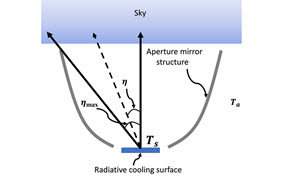Karl Leo: Efficiency improvements are key to future of organic photovoltaics
Organic photovoltaics could play a role in power generation. A cofounder of Heliatek talks about OPV's prospects.
Karl Leo is professor of optoelectronics at Technical University of Dresden (Germany) where he leads the Institute for Applied Photophysics (IAPP). His research focuses on organic semiconductors and emerging photovoltaics technologies.
"Organic semiconductors represent the new form of semiconductors, which are carbon-based," says Leo. As opposed to the classical silicon-based electronics, his work on carbon-based solutions have led him to applications such as organic light-emitting diodes (OLEDs) and organic solar cells.
At SPIE Optics + Photonics 2014, Leo gave the plenary talk, "Organic Solar Cells: From a Lab Curiosity to a Serious Photovoltaic Technology," an overview of the key features of solid-state organic solar cells and recent developments in the field.
Leo is also co-founder of Heliatek, a company instrumental in establishing environmentally friendly solar energy as a widespread, commonplace technology. Heliatek was created in 2006 by researchers from IAPP and the University of Ulm (Germany), bringing together expertise in the fields of organic optoelectronics and organic oligomer synthesis.
Leo recieved a Diplomphysiker degree and PhD degree from the Universities of Freiburg and Stuttgart, respectively. After postdocs at AT&T Bell Labs and RWTH Aachen, he became a full professor at TU Dresden (1993).
His work has been recognized by several awards including the Otto-Hahn-Medaille (1989), the Leibniz-Award (2002), the Manfred-von-Ardenne-Preis (2006), the Rudolf-Jäckel-Prize (2012), and an Hon. D. Tech from the University of Southern Denmark (2013).



